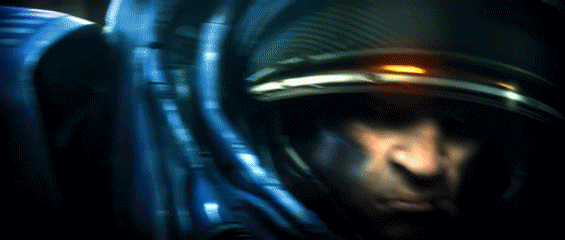-
Posts
449 -
Joined
-
Last visited
About Skcorpion86
- Birthday Mar 26, 1994
Contact Methods
-
Steam
psn_skcorpion86
-
Origin
Skcorpion86
-
Battle.net
Skcorpion86
-
PlayStation Network
Skcorpion86
-
Xbox Live
KAOSxSKORPION
-
Twitch.tv
http://www.twitch.tv/skcorpion86
-
Twitter
@KyserClark
Profile Information
-
Gender
Male
-
Location
Ohio
-
Interests
Video Games and Sports
-
Biography
My name is Kyser, and I enjoy playing videogames, and playing and watching sports
Recent Profile Visitors
1,354 profile views
Skcorpion86's Achievements
-
Well this is a bit annoying, however for some reason very thrilled that it wasn't something I was doing incorrectly. Just lack of knowledge with my motherboard and M2s. I didn't need the 2 TB HDD anyway. Just wanted to put it in there just because. 250 GB M2 SSD, 1TB Sata SSD, and 4 TB HDD should be plenty for a while. Now I need to figure out what to do with my extra 2 TB HDD. Haha. Thank you for the help.
-
Nope Windows does not see all of them. Bios and Windows share the same story. Refuse to show all 4 drives. The most annoying part is BIOS will have all 3 of my extra drives at "bootable" drives but not my M2 drive. Seems as if I can only boot from the m2 drive with 2 extra drives instead of 3 like I want I have managed to get each and every drive usable in Windows. Just not all at once for some reason
-
Hello all, been a while since I've posted here. I'm in need of some help. As the title states I can't get all four of my drives to show up in BIOS. I used to have 2 computers. One with a 1 TB SSD as a boot drive and a 2 TB HDD for additional storage. The 2nd computer has a 250 M2 SSD for a boot drive and a 4 TB HDD For additional storage. I decided I no longer need two computers, so I ended up taking apart my first computer to get ready to sell the parts individually. I also decided I wanted to keep the storage and just throw it into my 2nd computer for more storage than I need just because why Not? The problem is I can't get all four drives to show up simultaneously. When I plug them all in, all but one will NOT show up. I assumed one of my sata ports on the mother board were not working so unplugged and re plugged all the sata cables to see what what going on. I'm rulling out the fact that one of my SATA port is not working because as of now all my SATA drives are showing up in BIOS. My M2 SSD is currently not showing up in BIOS. To get my M2 SSD to show up I have to rearrange my SATA ports on the motherboard and BIOS seems to just pick 3 random drives to show up. Things to note: I'm using a MSI Krait Gaming Motherboard The 250 GB M2 SSD has been a boot drive for a while now. The fact it refuses to show up in BIOS when all the other drives are plugged in is a mystery to me. Although like stated before it can show up if I move arrange the sata ports differently in the Motherboard. When the 250 GB M2 SSD does not show up, the computer boots from my 1TB Sata SSD. (Since it was the boot drive from my Other PC) Am I Missing something? Or can I just not have all the dives active at once? Like I said I can only get 3 to work simultaneously. Thanks for the help in advance.
-
My friend put the cpu in the motherboard himself and put it back in the box for a week or so while he waited for his other parts to arrive. So I'm thinking he may of mishandled it. His brand new case had scufs and scratches all over it, so he probably just didn't handle the cpu well. Also I have the same exact motherboard and CPU as him, but I really didn't feel like tearing my stuff apart to test his stuff. I know either his motherboard or CPU is not working, So I'll probably just tell him to return both of them and get new ones just to be safe.
-
I just finished building my friends PC and when you turn it on all the fans will work like normal and, the graphics card leds light up, and it will run until you turn it off. On the motherboard the DRAM light, and the CPU lights are flashing indicating that they are faulty. I put different (known working) RAM in the PC and it still didn't boot up so that can't be an issue. So that leads me to think that the CPU is dead or the Motherboard is faulty. Which one could it be?
-

Bad RAM or Motherboard?
Skcorpion86 replied to Skcorpion86's topic in CPUs, Motherboards, and Memory
How do I figure out what timings to use? -
So I just completed a build, and everything works great except one thing.... When I go to the bios and change the speed of my RAM from "auto" (which is default set to 2133 MGHz) to "3200" (which is the max speed my ram supports) my screen will flicker all randomly next time I boot the system up. Then once its booted it acts like normal for a while and then randomly the screen will flash black every now and again and eventually go black for good. Only fix to the issue is to leave the speed set to "auto". It works fine. But I didn't pay for 3200 MGHz RAM to have it run at 2133 so I need to figure out why this is happening and could really use the assistance of the fine people of this forum. <3 When you think about it you think the RAM is at fault here, but if you look at all the BIOs updates notes for my motherboard you literally see "Improved Memory Capabilities" in each new BIOs version. So maybe my BIOs is to blame here (which I have made sure is up to date to the latest version) Parts I'm using: RAM Motherboard Motherboard Compatibility Intel Core i7 6700k CPU Thank you for your time and help in advance!
-
So I streamed for Galaxy on the Galax Gaming twitch channel for a while over a year ago and they sent me a 120 GB Gamer Series 2.5" SSD in the mail. To this day I have no idea what to do with it. My First PC has a 1TB Samsung 840 EVO for the Boot Drive and a 2TB HDD for storage, My 2nd PC I'm building is going to have the 256GB Samsung 950 Pro M2 SSD as a boot and 4TB HDD for storage. As you can tell there is almost no purpose in using it on one of my computers, I have no idea what to do with this extra SSD. What would you guys do with it? Plug it in one of the computers just for fun? Sell it? Put it away for potential future use (what I've been doing) Thanks for the advice and suggestions.
-
Just as the topic says. I am wondering if I can do multiple Displays without a dedicated GPU. I do not need a GPU for anything, however I do want to run multipel displays. The motherboard I have is the MSI Z170A KRAIT GAMING motherboard. I will be using a Intel core i7 6700K for my CPU. I see that the motherboard has a DVI and HDMI port on the I/O. So in theory I should be able to plug one monitor in with DVI and the other with HDMI correct and I will have a duel display setup without a GPU correct? Or does my motherboard and CPU not support this? Just asking before my parts come in the mail so I'm not in for any surprises after I build it. Thank you for the help in advance!
-
So I bought windows 8 legit with the build i have now. Upgraded to 8.1 and then got the free windows 10 upgrade when it came out. My question is, if I build a new PC do i have to buy windows 10 again. Note: I plan on keeping windows 10 on the current PC and also on the new build (2 PCs total) Anyway I can use my existing license for the new build or maybe even a discounted price on Windows 10? Thanks for the help in advance
-
I don't have a spare GPU. I have 2 gtx 980s in my gaming rig. Both will stay in the gaming rig. Already have two and plan on buying a 3rd one soon, thanks for the tip anyways though
-
Just as the title says, do I need a GPU for an upcoming build I am doing? I'm building a second computer to compliment the gaming rig I have now. My current rig is used for PC gaming, live streaming to twitch, and rendering videos. Streaming PC games on twitch is a hassle compared to console games. If I click off the game or alt + tab to chance scenes or do something else while playing the game it usually mutes the game and makes it frozen (depends on the game). Sometimes when clicking back on the game to continuing playing the recording/stream will get REALLY skippy / laggy. To fix this you literally have to click off the game and back onto the game until the stream / recording looks good. Consoles are way easier to stream and record because the game isn't being ran on my PC and it takes a huge load off my PC. I can change whatever setting on my PC without the recording or stream being affected. I want to make my streams / recordings always for PC games as well and the solution is to get another PC. The first PC will run the games, the 2nd one would capture the gameplay and upload the stream to twitch. My question is, do I need a GPU for what I am doing with the 2nd PC? I will be playing absolutely zero games with it. I'll have my recording software running on it and probably use the 2nd PC for internet browsing as well. Another question I have: Even if I may not NEED a GPU for this, But would it help in anyway? Would it be a waste of money? Please let me know. Thank you for your time and your help in advance!
-
My neighbor and friend of mine is looking to build a PC that can stream League of Legends on twitch. I need recommendations on a CPU and a GPU. That is just good enough to stream LoL without issues. I don't want to go overkill and buy super expensive parts. Just enough to get the job done. I've been told it won't be used for much more than that. The rest of the build I can handle myself, just need a CPU and GPU recommendation. Thanks guys.








